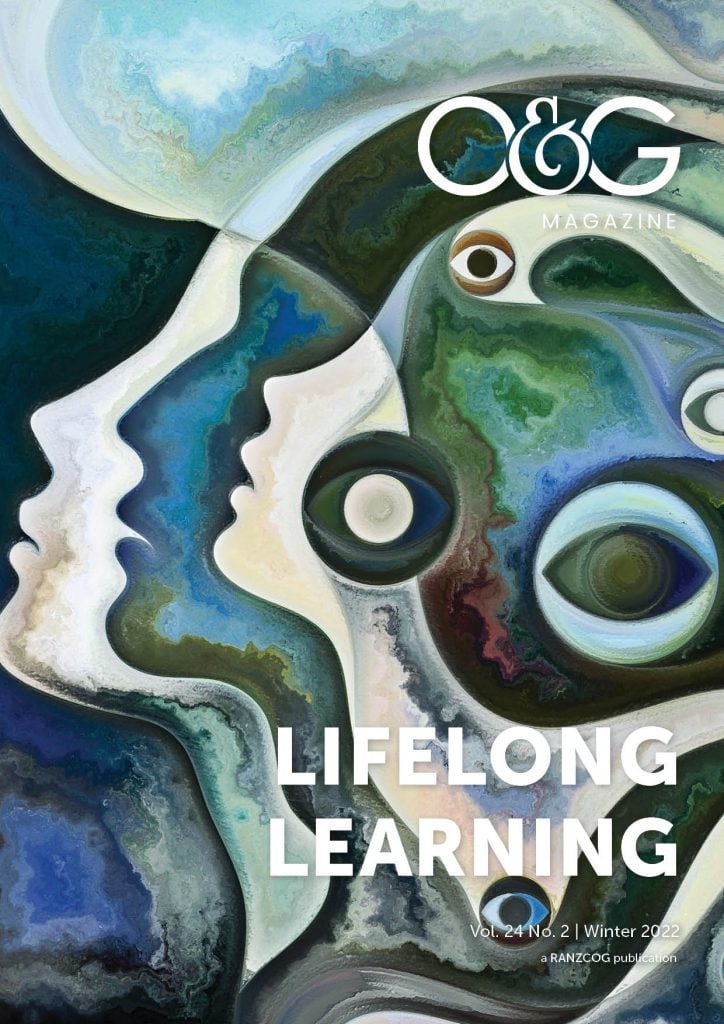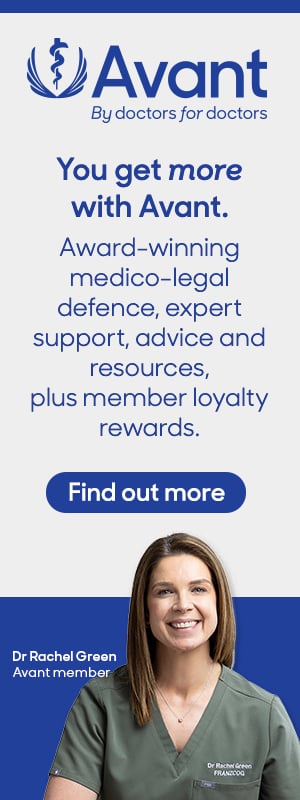Do surgeons need coaches? But I thought coaches were for sports teams, and possibly for high-flying corporate executives. This is an interesting question contested in a 2011 article in The New Yorker by the noted author of The Checklist Manifesto and Complications, general surgeon, Atul Gawande.1 Atul challenged all coaches and described his success in recruiting his own surgical coach to his surgical potential.
What is coaching?
Many people confuse coaching with parallel activities such as teaching, mentoring and counselling. A simplistic distinction of coaching from these other activities can be summarised as ‘asking rather than telling’. A coaching interaction is a non-judgemental conversation between coach and coachee fuelled by curiosity2 3 and driven by effective questioning and deep listening.4
What are the benefits of surgical coaching?
Published results of the benefits of surgical coaching are still thin on the ground. The impact of coaching on improving the results of Michigan Bariatric Surgical Collaborative are impressive.5,6 Greenberg and her colleagues have demonstrated the efficacy of surgical coaching through their Wisconsin based Academy of surgical coaching.5 6Louridas et al, in a recent systematic review of coaching in surgical education, has established criteria to encourage further research into surgical coaching and how it fits with other parallel activities such as teaching and mentoring.7 This may be the fertile opportunity for research with enthusiastic registrars and consultants.
One surgeon’s coaching journey so far
In 2012, I was invited to Zurich to attend a workshop run by the AO Trauma organisation who have been providing world-leading surgical education for over 60 years. I was selected to be one of the newly created members of the regional education trainers (RET) within our Asia Pacific region, one of five regions in the AO world who also sent members from each of the other regions to be upskilled by PhD educators to facilitate the development of the teaching faculties around the world. After a very enlightening education workshop, we were sent on our return journey with homework to read Gawande’s article. This started me thinking about this novel concept of coaching for proceduralists.
How good or bad is our current CPD?
I reflected on the issues raised in this article and thought that overall, our registrar training in Australasia was likely to rival the best in the world. Unfortunately, after passing our exit exams as surgeons, the CPD process lacks rigor and to me is essentially a tick-box exercise. Could coaching provide an avenue to address this shortfall? I noticed that my orthopaedic colleagues in New Zealand were required to be involved in the NZOA Practice Visit Programme since 201210,11 The New Zealand general surgeons followed a similar program in 2020. While innovative, this seemed to lack one critical element – training of the observer in the skills of feedback. I wondered could this be enhanced by some training in this key facet and possibly even more so by a coaching mindset?
Should coaching become part of our hospital accreditation?
The current hospital accreditation process is essentially a tick box activity with little future planning. Could coaching be recommended as the process for taking the current audit processes to begin to develop a culture of continuing improvement within our hospitals? Most surgeons and O&Gs operate in a vacuum with little oversight or opportunity to get a fresh set of eyes on the way we practice. This leads to stagnation of our abilities and practice. A coaching mindset would allow a fresh look at how we approach clinical issues and allow us to develop goals of self-improvement, ultimately improving the outcomes of our patients.
This cultural and mindset change will also benefit our trainees and medical students in their education and mastery of our fields. Introduction of innovations such as robotic-assisted surgeries and similar technological changes would also be facilitated by a coaching approach. If we could encourage the medical indemnity insurers to fund the research to demonstrate the benefits of coaching, this may be reflected favourably in our insurance contributions.
Surgical education and feedback skills
Following my trip to Zurich, my teaching of registrars, medical students and fellows took a significant leap forward with the new feedback skills learnt. My appetite had been whetted and I sought out the newly released Masters of Surgical Education program offer conjointly with the RACS and University of Melbourne. I met several like-minded surgical educators, including some O&Gs. The science of education was fascinating, and my skills developed further as I learnt and understood more and more about the theories of adult education.
What can we learn from the defence forces?
As a member of the Royal Australian Navy (RAN), I have had the privilege of experiencing high-quality leadership training. On the back of a number of leadership workshops, I have been offered some one-on-one coaching within the Directorate of Navy Culture.8 Finding this an enlightening experience and noting the lack of formal leadership training within civilian health, I began to reflect that this was a missing element in this sphere of my life.
Coach training
In December 2019, my Christmas present was to be asked to join the professional coaching group within the RAN, having completed my level 1 & 2 coach training with the Institute of Executive Coaching and Leadership. Soon after I became time rich with the impact of CoVid, and many surgical lockdowns inflicted on our elective surgical practices. I was able to invest this time in coaching some wonderful emerging leaders in the RAN. Inspired by this, I enrolled in a Masters of Coaching Psychology at the University of Sydney. My studies have introduced me to the world of research that underpins the art of coaching and has bolstered my coaching practice.
Do surgeons need coaches?
Returning to my original lightbulb moment inspired by Gawande, who had gone out and sourced his own surgical coach, I began to search for other examples of this. I discovered that an Academy for Surgical Coaches had been established in Wisconsin, USA, by a number of enlightened surgeons, including some O&Gs. It offered a four-hour training program, which I undertook in 2020.
A good framework to start coaching
Sir John Whitmore offered us a simple but effective framework to base our coaching, the GROW model.9 This starts with goal setting (G) then assessment of the current reality (R) establishing a gap to work on with the coach. All the potential options (O) are then considered before establishing what will (W) happen in an action plan to achieve these goals. Coaches will also add accountability to the coaching relationship. I see true CPD involving an O&G surgical coachee setting their learning goals for the year and then working with their coach to develop a plan to achieve these CPD goals.
How can we acquire and develop some coaching skills?
For O&Gs and surgeons interested in experiencing what surgical coaching may offer, the Academy of Surgical Coaching have a four-hour virtual basic surgical coach training at $1000 USD (surgicalcoaching.org). There is a local surgical coach training program in development at Monash University that will provide some local training soon.
Video based or face-to-face?
A case can be made for both direct observation and video-based coaching. The former is quite time consuming for the coach and possibly distracting for the coachee. Video-based capture of endoscopic footage of camera based in the surgical lights or GoPro camera have been described. The latter is more time efficient for the coach along with a Zoom coaching session after watching the recorded surgical procedures with snippets used to provide curious coaching. Some ethical issues may need to be addressed within each hospital setting but should fall under the privileged gamut of similar audit processes. Depending on the coachee’s needs, expert coaching or peer-based coaching models have been described. Some would say a coach doesn’t even need to be in the specialist field and may be able to ask more probing curious questions from a place of relative ignorance.
The challenge
I would like to conclude with a challenge to all surgeons that aspire to being the best they can be. Sir John Whitmore summarised coaching in a simple equation:
Performance = potential – impediments10
To achieve this, a surgeon needs help to uncover blind spots and be held accountable by their coach who has helped them develop challenging SMARTER goals that will progress them closer to their ultimate potential, thus maximizing the outcomes for their patients and benefiting their profession within a better health system.
Coaching checklist
- Make the decision you would like to improve
- Find a coach
- Commit to goals and ground rules at first coaching conversation
- Capture some operative video footage
- Arrange coaching sessions to review this
- Consider training to become a surgical coach
Suggested Resources
- Podcasts
- YouTube and TED talks
- Books
References
- Gawande A. Personal Best: Top athletes and singers have coaches. Should you? The New Yorker. 2011.
- Bungay Stainier M. The coaching habit: Say less, ask more and change the way you lead forever. Box of Crayons. 2016.
- Bungay Stainier M. The advice trap: Be humble, stay curious and change the way you lead forever. Box of Crayons. 2020.
- Trimboli O. Deep listening: Impact beyond words. Available from: oscartrimboli.com. 2017
- Greenberg CC, Ghousseini HN, Pavuluri Quamme SR, et al. A Statewide Surgical Coaching Program Provides Opportunity for Continuous Professional Development. Ann Surg. 2018;267(5):868-73. doi.org/10.1097/SLA.0000000000002341
- Greenberg JA, Jolles S, Sullivan S, et al. A structured, extended training program to facilitate adoption of new techniques for practicing surgeons. Surg Endosc. 2018;32(1):217-24. doi.org/10.1007/s00464-017-5662-2
- Louridas M, Sachdeva AK, Yuen A, et al. Coaching in Surgical Education: A Systematic Review. Ann Surg. 2022;275(1):80-4. doi.org/10.1097/SLA.0000000000004910
- Royal Australian Navy. Navy leadership coaching program. 2022. www.navy.gov.au/about/organisation/new-generation-navy/leadership-culture-development/navy-leadership-coaching-program
- Whitmore J. Coaching for Performance. The principles and practice of coaching and leadership (5th ed.). Nicholas Brealey. 2017.
- Whitmore J. Coaching for Performance. The principles and practice of coaching and leadership (5th ed.). Nicholas Brealey. 2017.
- Whitmore J. Coaching for Performance. The principles and practice of coaching and leadership (5th ed.). Nicholas Brealey. 2017.
- Bungay Stainier M. The coaching habit: Say less, ask more and change the way you lead forever. Box of Crayons. 2016.






Leave a Reply